DIODE MODULES
| Features | Typical Application | PDDN-Notes |
|
|
|
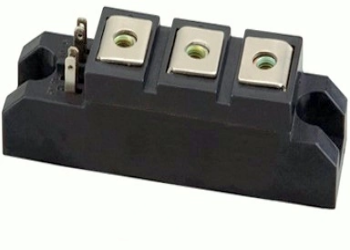
| Type | IF[AV] [A] | VRRM [V] | IRRM [mA] | IF[RMS] [A] | IFSM [kA] | Datasheet | Offer |
|---|---|---|---|---|---|---|---|
| PDDN-MDx26 | 26 | 600-1800 | 8 | 41 | 0.65 | Request | |
| PDDN-MDx40 | 40 | 600-1800 | 8 | 63 | 1 | Request | |
| PDDN-MDx55 | 55 | 600-1800 | 8 | 86 | 1.3 | Request | |
| PDDN-MDx55H | 55 | 1900-3000 | 10 | 86 | 1.3 | Request | |
| PDDN-MDx70 | 70 | 600-1800 | 8 | 110 | 1.8 | Request | |
| PDDN-MDx70H | 70 | 1900-3000 | 10 | 110 | 1.8 | Request | |
| PDDN-MDx90 | 90 | 600-1800 | 8 | 141 | 2.3 | Request | |
| PDDN-MDx90H | 90 | 1900-3000 | 10 | 141 | 2.3 | Request | |
| PDDN-MDx110 | 110 | 600-1800 | 8 | 173 | 2.6 | Request | |
| PDDN-MDx110H | 110 | 1900-3000 | 12 | 173 | 2.6 | Request | |
| PDDN-MDx135 | 135 | 600-1800 | 12 | 212 | 3.9 | Request | |
| PDDN-MDx135H | 135 | 1900-3000 | 14 | 212 | 3.9 | Request | |
| PDDN-MDx160 | 160 | 600-1800 | 12 | 251 | 6 | Request | |
| PDDN-MDx160H | 160 | 1900-3000 | 14 | 251 | 6 | Request | |
| PDDN-MDx182 | 182 | 600-1800 | 12 | 286 | 6.4 | Request | |
| PDDN-MDx182H | 182 | 1900-3000 | 14 | 286 | 6.4 | Request | |
| PDDN-MDx200 | 200 | 600-1800 | 12 | 314 | 8 | Request | |
| PDDN-MDx200H | 200 | 1900-3000 | 16 | 314 | 8 | Request | |
| PDDN-MDx250 | 250 | 600-1800 | 20 | 393 | 11 | Request | |
| PDDN-MDx250H | 250 | 1900-3000 | 25 | 393 | 11 | Request | |
| PDDN-MDx300 | 300 | 600-1800 | 20 | 471 | 12.5 | Request | |
| PDDN-MDx300H | 300 | 1900-3000 | 25 | 471 | 12.5 | Request | |
| PDDN-MDx350 | 350 | 600-1800 | 30 | 550 | 15 | Request | |
| PDDN-MDx350H | 350 | 1900-3000 | 35 | 550 | 15 | Request | |
| PDDN-MDx400 | 400 | 600-1800 | 30 | 628 | 17 | Request | |
| PDDN-MDx500 | 500 | 600-1800 | 40 | 785 | 21 | Request | |
| PDDN-MDx800 | 800 | 600-1800 | 45 | 1256 | 18 | Request | |
| PDDN-MDx1000 | 1000 | 600-1800 | 50 | 1570 | 20 | Request | |
| PDDN-MDx1200 | 1200 | 600-1800 | 50 | 1884 | 20 | Request | |
| PDDN-MDx400W | 400 | 600-1800 | 30 | 628 | 10 | Request | |
| PDDN-MDx500W | 500 | 600-1800 | 40 | 785 | 12 | Request | |
| PDDN-MDx600W | 600 | 600-1800 | 40 | 942 | 15 | Request | |
| PDDN-MDx800W | 800 | 600-1800 | 40 | 1256 | 18 | Request | |
| PDDN-MDx1000W | 1000 | 600-1800 | 40 | 1570 | 18 | Request |
| Remark: | 1.MDx shows any type of MDC / MDA / MDK / MD |
Overview of Diode Modules
Diode modules are electronic devices integrated with multiple diodes, which are small in size, reliable, and convenient. They are widely used in various circuit functions, such as rectification, voltage regulation, and switching. Special diode modules such as Schottky and fast recovery diode modules are suitable for specific high-frequency, high current, or high-efficiency circuits, such as switching power supplies, frequency converters, and inverters. In addition, the voltage regulator diode module provides stable voltage output and is suitable for various power circuits. Select appropriate diode modules to achieve specific functions based on application requirements.
Characteristics of Diode Modules:
1. High reliability: The diode module adopts an integrated packaging form with a stable and reliable internal structure, reducing potential problems caused by welding, wiring, and other links and improving the reliability of the entire circuit.
2. High efficiency: Due to the optimization of the internal structure of the diode module, its forward voltage drop is low, and the reverse leakage current is small, which makes it highly efficient in applications such as rectification and switching.
3. Easy to use: The packaging form of the diode module makes it easy to install and connect, reducing the debugging workload of designers. At the same time, its high reliability also reduces the maintenance cost for users.
4. High performance: Some particular types of diode modules, such as Schottky diode modules and fast recovery diode modules, have characteristics such as low forward voltage drop and brief reverse recovery time, making them excellent in special applications such as high frequency and high current.
5. Wide applicability: Diode modules can be suitable for various circuit requirements, such as rectification, voltage regulation, switching, protection, etc., which makes them widely used in fields such as power electronics, communication, and automatic control.
Application of Diode Modules
1. Power supply rectification: As a rectifier, the diode module can convert AC power into DC power, achieving voltage stability of the power supply. This is one of the most common uses of diodes.
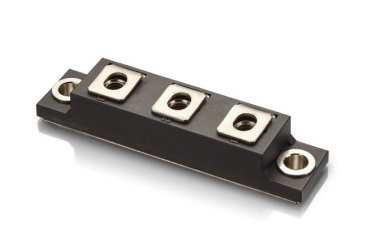
(Diode modules)
2. Signal processing: The diode module can be used for signal rectification and filtering, extracting functional signal components, and suppressing useless noise and interference.
3. Automatic control: In automatic control systems such as motor control, temperature control, etc., diode modules can serve as switching elements to achieve circuit on/off control.
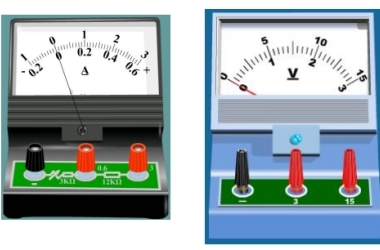
(The diode module is used for voltmeters and ammeters)
4. Electronic measurement: Diode modules can be used in electronic measurement equipment, such as voltmeters, ammeters, multimeters, etc., to provide necessary rectification or switching functions.

(Communication system)
5. Communication system: In the communication system, the diode module can be used for signal modulation and demodulation, as well as the reception and transmission of RF signals.
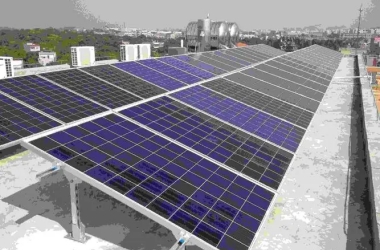
(Photovoltaic system)
6. Photovoltaic system: In the photovoltaic system, the diode module can act as an electrical isolation between the battery panels, preventing current backflow and completing the maximum power point tracking function between solar cell modules.
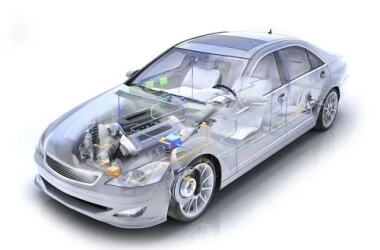
(Automotive Electronics)
7. Automotive Electronics: In the field of automotive electronics, diode modules can be used for various circuit protection, power management, and signal processing.

Company Profile
PDDN Photoelectron Technology Co., Ltd. (sales@pddn.com) is a high-tech enterprise focusing on the manufacturing, R&D, and sales of power semiconductor devices. Since its establishment, the company has been committed to providing high-quality, high-performance semiconductor products to customers worldwide to meet the needs of the evolving power electronics industry.
It accepts payment via Credit Card, T/T, West Union, and Paypal. PDDN will ship the goods to clients overseas through FedEx and DHL, by sea, or by air. Please inquire if you want a high-quality Diode Modules; we will help.
Payment Methods of Diode Modules
L/C, T/T, Western Union, Paypal, Credit Card etc.
Shipment of Diode Modules
By sea, by air, by express, as customers request.
Storage Conditions for the Diode Modules
1. Temperature requirements: Diodes should be stored in a dry, ventilated, and temperature-appropriate environment to avoid moisture, supercooling, or overheating. Generally speaking, the storage temperature of diodes should be between -40 ℃ and+125 ℃.
2. Humidity requirements: Diodes should be stored in an environment with a relative humidity of no more than 60% to avoid moisture, oxidation, and other problems caused by moisture.
3. Lighting requirements: Diodes should be stored in a dark environment, avoiding direct sunlight or prolonged exposure to intense light to avoid affecting their performance.
4. Anti-static: Diodes should avoid contact with static-sensitive devices to prevent static electricity from affecting them.
5. Packaging requirements: Diodes should be stored in moisture-proof, dust-proof, and shockproof packaging boxes to avoid mechanical damage or vibration.
6. Storage time: The storage time of diodes should be a manageable length, generally not exceeding six months. After exceeding the time, quality inspection should be carried out to ensure that their performance meets the requirements.
FAQ
Q1
What is the basic working principle of a diode module?
Re:The basic working principle of a diode module is to utilize the unidirectional conductivity of the diode. In forward bias, current can pass through the diode; During reverse bias, the current is blocked.
Q2
What are the types of diode modules, and what are the main differences between them?
Re:Diode modules are mainly divided into ordinary diode modules and special diode modules. Standard diode modules are used primarily for essential circuit functions such as rectification, voltage stabilization, and switching. In contrast, special diode modules include Schottky diode modules, fast recovery diode modules, etc., which are suitable for specific high-frequency, high-current, or high-efficiency circuits.
Q3
How to choose a diode module that is suitable for a specific application?
Re:The selection of diode modules suitable for specific applications mainly considers parameters such as operating voltage, current, frequency, and temperature, as well as factors such as circuit requirements and cost.
Q4
What issues should be noted when using diode modules?
Re:When using diode modules, attention should be paid to working voltage and current limitations to prevent overload and thermal damage, Reasonable heat dissipation design, appropriate driving circuits, and trigger signals, Safe isolation, And suitable storage and transportation conditions.
Q5
What are the potential application areas of diode modules?
Re:The potential application areas of diode modules include motor control, new energy inverters, reactive power compensation, and harmonic management.
Opening Time
- Sunday – Friday: 09:00am – 10:30pm
- Saturday: 10:00am – 02:00pm
Contact Info.
- Email: sales@pddn.com
- Mobile: +86 18837951818
Contact Address
- Tongrun photoelectron, 3rd Floor, Nanshan Science Park, Nanshan District, Shenzhen, Guangdong, China
